The restless steps of a general in peacetime
Mentioning Senior Lieutenant General Nguyen Huy Hieu is mentioning a general who grew up on the battlefield. He participated in the fight to protect the Fatherland in 4 major campaigns: Mau Than 1968; Route 9 - Southern Laos 1971; Quang Tri 1972 and the Ho Chi Minh Campaign 1975. During his military career, he went through 67 fierce battles and was wounded on the battlefield. When he was awarded the title of Hero of the People's Armed Forces, Nguyen Huy Hieu was just 26 years old and at the age of 40, he was promoted to the rank of Major General, becoming one of the youngest generals in the entire army at that time... However, in the conversation with me, he rarely mentioned his achievements. He only mentioned his comrades, many of whom had fallen on the fiery land of Quang Tri years ago.
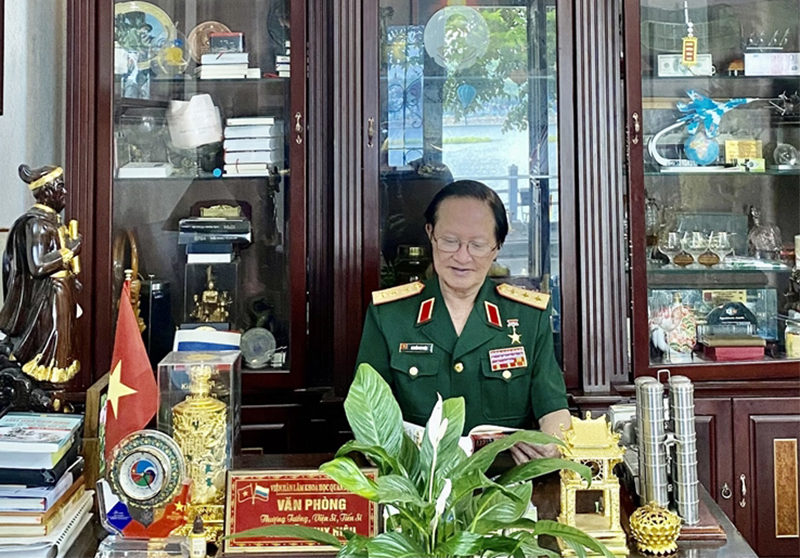 |
At nearly 80 years old, Senior Lieutenant General, Academician, Hero of the People's Armed Forces Nguyen Huy Hieu still works tirelessly. Photo provided by the character |
There is something special about Senior Lieutenant General Nguyen Huy Hieu: Every year, he returns to the old battlefield. “That is a promise to his comrades,” he said briefly.
Those trips back were not only to burn incense in gratitude but also for him to do other meaningful things. Over the years, he has always tried to mobilize, connect, and contribute to the construction of the Martyrs' Temple at Cao Diem 31, the Gio An Pagoda Spiritual Cultural Complex, the Banyan Tree Temple at Dia Well, the 27th Regiment Memorial Area, the Quang Tri Nostalgia Monument, the Ma Sau Ngau Monument (in the former Binh Duong province)... with the thought of paying tribute to the heroic martyrs who fell for the independence and freedom of the Fatherland. These are not only memorial works, but also places for the younger generation to come and understand more about the past.
“Many nights, I could not sleep. Thinking about those who have fallen under this layer of earth, I told myself to live a worthy life,” the general said in a low voice.
Every July, the hot Lao wind blows through the eucalyptus forests and the green banks of the Thach Han River. In front of the rows of tombstones at the Truong Son Martyrs' Cemetery, he stands still for a long time as if remembering a time of bombs and bullets. More fortunate than his comrades who remained on the old battlefield, Senior Lieutenant General Nguyen Huy Hieu lives in peacetime but still feels for his comrades. It is that memory that has urged him to do meaningful things, without ostentation, without noise, just persistently for many decades.
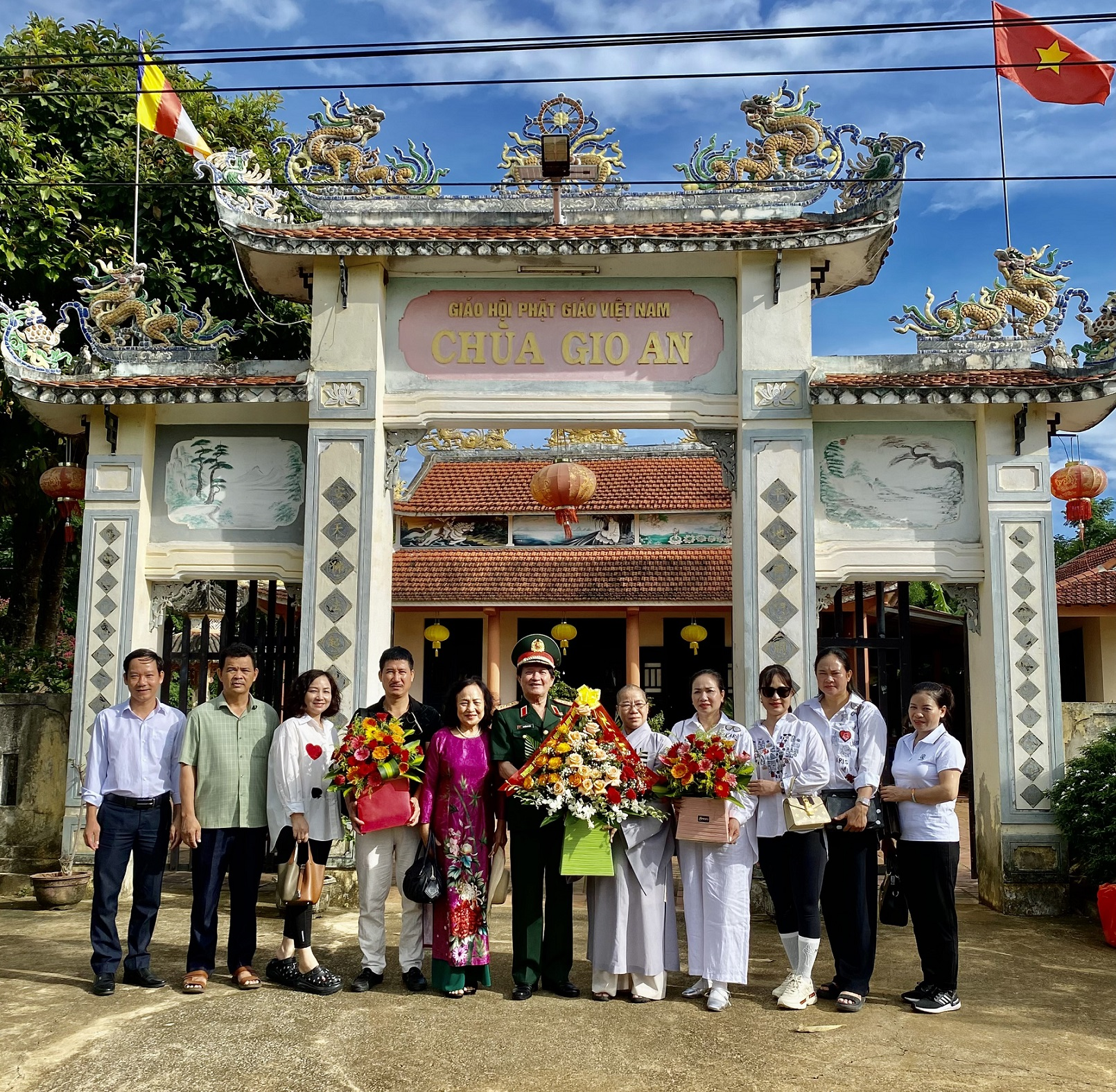 |
Senior Lieutenant General Nguyen Huy Hieu at Gio An Pagoda Spiritual Cultural Complex, where he and his teammates mobilized and connected to contribute to the construction. |
Whenever he has the opportunity, he sets out to do good deeds, from working with the people to restore historical relics, visiting and giving gifts to families of policy beneficiaries and children affected by Agent Orange, to helping relatives of his comrades find the graves of martyrs, for whom he had personally recorded meticulously the names of each person, their hometowns, and burial places...
Just counting the number of comrades who died that Senior Lieutenant General Nguyen Huy Hieu directly witnessed, some of whom he personally bandaged and carried to burial, amounted to hundreds. People considered him a "living history book" of the glorious battles of the Liberation Army. Thanks to his special notes and memory, many families later found the remains of their loved ones and brought them back to their hometowns for burial...
Among them, there is the touching story of Mrs. To Kim Khuy in hamlet 12, Giao Ha commune, Giao Thuy district, old Nam Dinh province (now Ninh Binh). Through the memories and notes of Senior Lieutenant General Nguyen Huy Hieu, she learned that her husband, the tank captain, Heroic Martyr Hoang Tho Mac, fought bravely and sacrificed himself at the last minute of the war to liberate the country, that was noon on April 30, 1975, in front of the northern gate of Saigon.
It can be said that, although retired, the tireless footsteps of Senior Lieutenant General Nguyen Huy Hieu still leave their mark throughout the countryside, where his comrades rest...
diligently advertise give knowledge
One summer afternoon in Hanoi, I met Senior Lieutenant General Nguyen Huy Hieu at his Academician Office on Tran Vu Street. In the tidy room, not spacious but filled with the warmth of books and time-soaked mementos, the General was still diligently working on manuscripts and handwritten notes, all bearing the mark of diligence.
He smiled gently when he saw me looking intently at the bookshelves: “I don’t have much property. I only have these books. I write to repay my comrades and to let the next generation understand that the blood and bones of our ancestors are not meaningless. I choose books - because books are teachers, the bridge connecting the past with the future.”
In his office, he showed me the books he wrote and many books written about him by writers and journalists. Over the past 20 years, he has written, compiled, and edited more than 10 major works on Vietnam's defense diplomacy, military art, natural disaster prevention and control, search and rescue, environmental protection, etc.
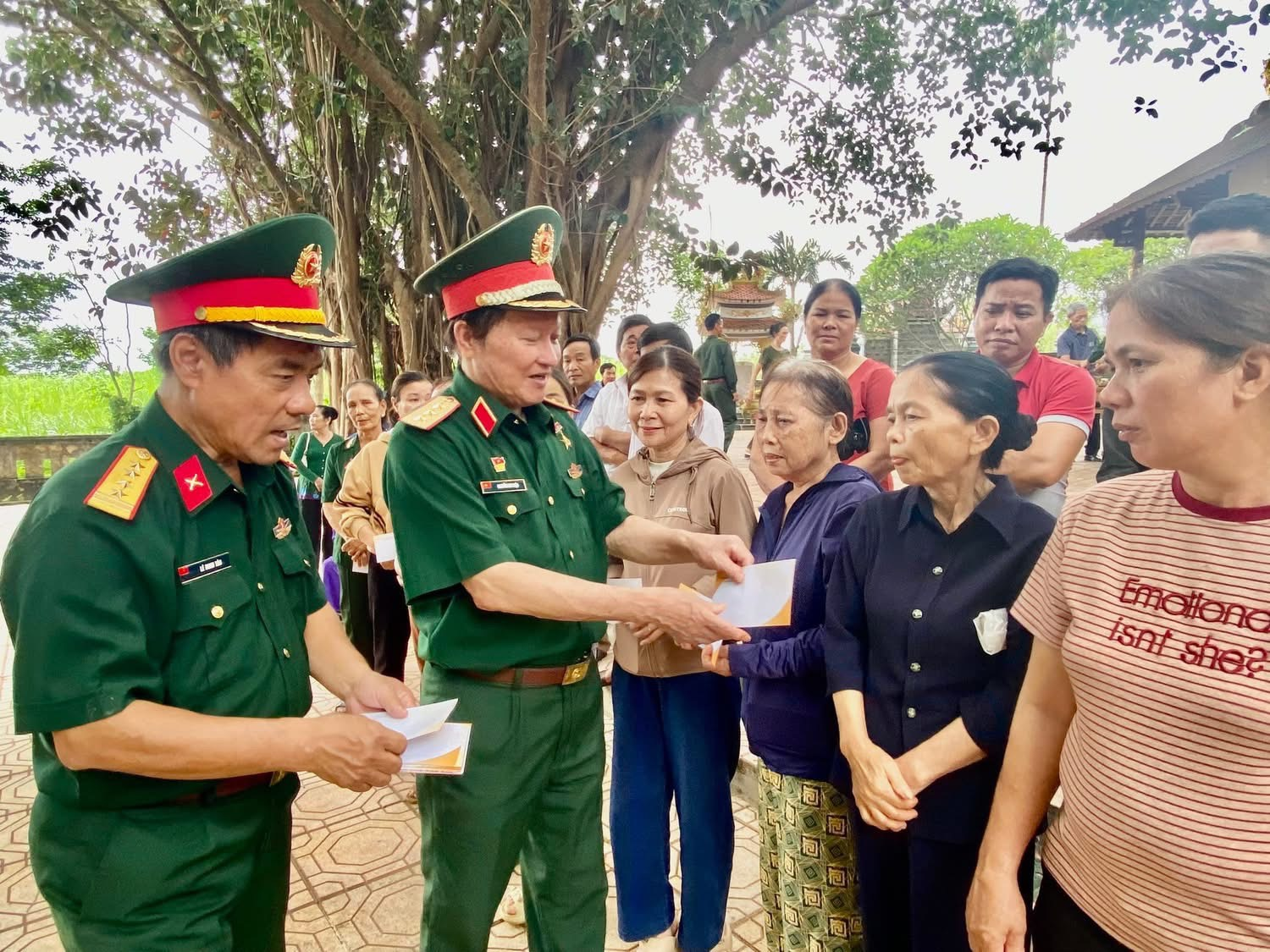 |
| Senior Lieutenant General Nguyen Huy Hieu visits and presents gifts to policy families in Quang Tri. Photo provided by the character |
Among them, “A Time in Quang Tri” is a special work, written by him with Colonel and writer Le Hai Trieu. The book records the memories of the fiery summer of 1972, where he and his comrades fought steadfastly to protect the independence of the Fatherland. The work has been translated into English, became a gift to US President Barack Obama when he visited Vietnam, and is currently kept at the Washington library.
He recounted with eyes sparkling with joy: "I hope that through the pages of the book, international friends will better understand a Vietnam that loves peace, but is steadfast in protecting the Fatherland."
“I write to remember, but more importantly, to let future generations understand that today's peace was exchanged for blood and bones,” Senior Lieutenant General Nguyen Huy Hieu said, his eyes deep.
The books he wrote, each word like a “battle” in peacetime - requiring research and intellectual work no less than when he was in command. “Writing is how I continue to fight. Each book is like a brick, contributing to building the knowledge foundation for the country” - he said in a deep, decisive voice.
He said: “I have given more than 50,000 books to schools, libraries, museums, teammates and international friends. Giving books to me is giving a belief: Belief in knowledge.”
On many trips, he brought along several boxes of books, personally signing them. He said: “Books reaching the hands of readers are like trees having soil to take root.” His book trucks have reached many rural areas, many Border Guard stations, all the way to Truong Sa, reaching the hands of young soldiers, poor students...
When talking to the young generation, Senior Lieutenant General Nguyen Huy Hieu often said with eyes full of hope: "You must understand that it is not easy to achieve peace in this country. You must study and work with all your intelligence and heart." That message is simple but profound, like an order not written on paper, but with the heart.
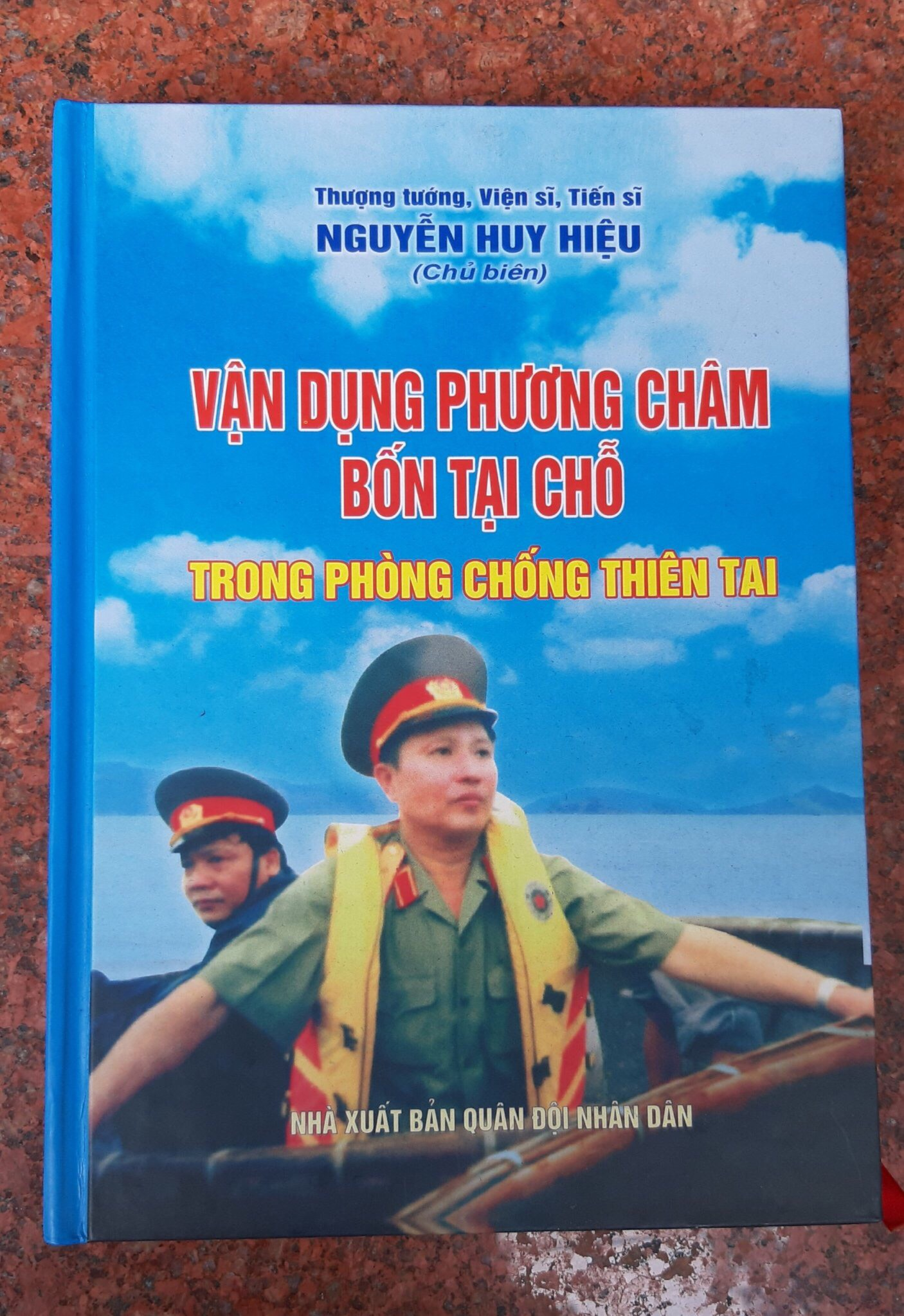 |
In 2009, Senior Lieutenant General Nguyen Huy Hieu edited the book "Applying the "Four on-the-spot" motto in natural disaster prevention and control". |
Senior Lieutenant General Nguyen Huy Hieu is also known as the “architect” of many defense strategies and is one of the pioneers in modern defense diplomacy. He devoted his time to researching military science and has a PhD. In 2010, Senior Lieutenant General Nguyen Huy Hieu was the first Vietnamese person to be awarded the title of Academician by the Russian Academy of Military Sciences. This is an international testament to his intelligence, stature and profound influence in the field of modern war art and global defense cooperation.
Speaking at the ceremony at that time, Lieutenant General Truong Quang Khanh (later Senior Lieutenant General), Deputy Minister of National Defense emphasized: The election of Senior Lieutenant General, Dr. Nguyen Huy Hieu as a foreign academician of the Russian Academy of Military Sciences is not only a great honor for the Senior Lieutenant General personally but also shows the appreciation and recognition of the great achievements of Vietnamese military science and Vietnamese military art.
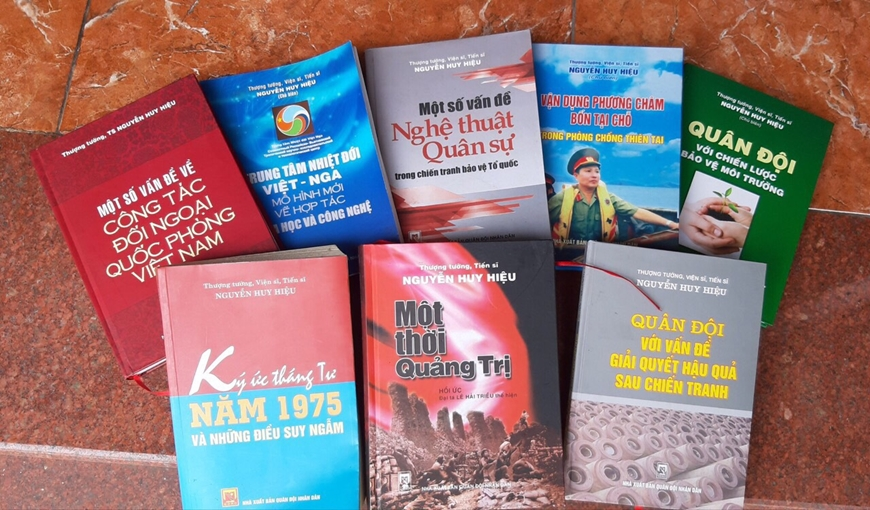 |
| Senior Lieutenant General Nguyen Huy Hieu shared: “Writing is the way I continue to fight. Each book is like a brick, contributing to building the knowledge foundation for the country.” |
Senior Lieutenant General Nguyen Huy Hieu is the author of the book “Some issues of Military Art in the war to defend the Fatherland” - a meticulous research work, rich in practicality and theoretical depth, considered an important document in training and research of many units and academies in the entire army. The book not only summarizes experiences from combat practice but also contributes to conveying scientific and modern military thinking, associated with the requirements of building and defending the Fatherland in the new situation.
Talking about Senior Lieutenant General Nguyen Huy Hieu, Colonel Le Minh Tan, former Deputy Director of the Logistics Department, General Department of Politics of the Vietnam People's Army, said: "Chief Nguyen Huy Hieu does great things in a very simple way - quietly sowing knowledge into life."
Senior Lieutenant General Nguyen Huy Hieu's days are as regular as a march: two hours of work in the morning, two hours of writing in the afternoon, interspersed with meetings and professional exchanges with teammates and friends. Working with him are his colleagues, many of whom are generals. He still participates in scientific councils, still goes to lecture halls to talk to students, still worries about the country's problems like when he was at the General Staff of the Vietnam People's Army.
Light the fire for the young generation
Gratitude – for Senior Lieutenant General Nguyen Huy Hieu is not just about writing books or building temples. He also has a very unique way: Planting trees. To date, he has planted more than 500 Bodhi and Sala trees at martyrs’ cemeteries and temples across the country.
Right in the grounds of the Quang Tri Citadel (the old name), there is now a large banyan tree, which several people can barely hug around. The people here consider it a living symbol of the strong vitality of the land that once suffered from bombs and bullets, then struggled to withstand the storms and floods of the Central region to revive. Few people know that the banyan tree was planted by Senior Lieutenant General Nguyen Huy Hieu in 1983. For him, the banyan tree is a memory associated with an unforgettable trip.
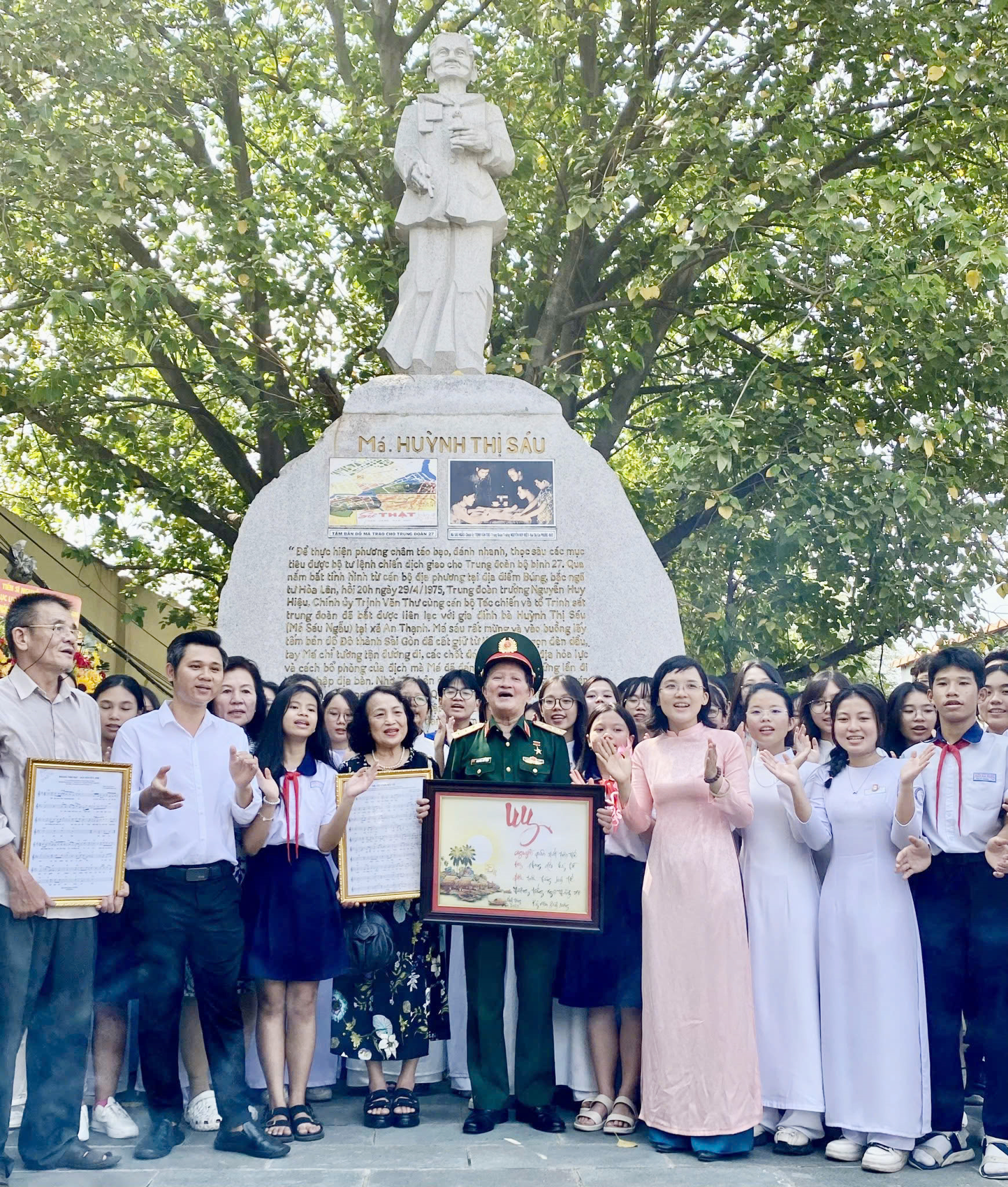 |
| Senior Lieutenant General Nguyen Huy Hieu interacted and shared with the young generation about the heroic tradition of the Vietnamese people in general and the Vietnam People's Army in particular (pictured next to the statue of Mrs. Sau Ngau in Binh Duong, now Ho Chi Minh City). |
He said that in 1977, he joined a delegation of the Vietnam Friendship Association to visit many countries, including India. His biggest impression at that time was the “green revolution” – a great effort to help the neighboring country rise from poverty.
“The then Prime Minister of India, Mrs. Indira Gandhi, gave each person a tree as a souvenir. Many people chose roses, but I thought of the image of the countryside, with the Vietnamese tradition of banyan trees, wells, and communal houses, so I decided to ask for a small banyan tree,” Senior Lieutenant General Nguyen Huy Hieu recalled.
The banyan tree was only about 30cm high at that time, placed in a trough. After returning from India, he kept it carefully, even during his school years. It was not until 1983, during a business trip to Quang Tri, that he decided to plant the banyan tree at the Quang Tri City Team (later Quang Tri City Team) - as a message about the perseverance and steadfastness of the people and land here.
“Planting a tree of gratitude” – he called it that, so that the shade of the tree would be a reminder of the sacrifice.
He also quietly cares for the difficult lives of veterans and gives scholarships to poor students. “My comrades died so that they could study. I will do what I can for the younger generation,” he said simply.
To young officers in the Army, he was a devoted teacher. His talks on tradition and military art always filled the hall… That was also the way he nurtured patriotism in today’s youth.
Hanoi afternoon fell, the last sunlight of the day shone on his silver hair. I suddenly thought, the life of Senior Lieutenant General Nguyen Huy Hieu was like a Bodhi tree he planted in Quang Tri land in the past: Roots deeply rooted in the tradition of patriotism, the sturdy trunk reaching up to welcome the light of knowledge, the gentle foliage casting shade for today's and future generations. A soldier who has gone through the fire of war, now still tirelessly working on the new "battlefront" - the battlefront of knowledge, of humanity. That image - a simple but noble general!
NGUYEN HUONG
Source: https://www.qdnd.vn/phong-su-dieu-tra/cuoc-thi-nhung-tam-guong-binh-di-ma-cao-quy-lan-thu-16/thuong-tuong-nguyen-huy-hieu-vi-tuong-binh-di-va-mot-doi-cong-hien-bai-2-dau-dau-lam-nhieu-viec-nghia-de-tri-an-tiep-theo-va-het-839234














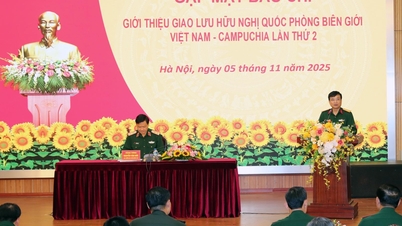

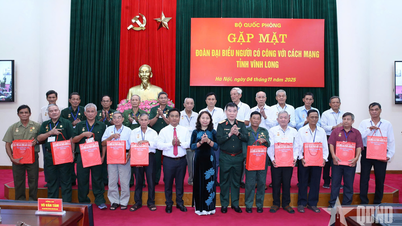

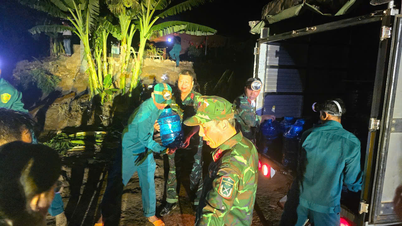
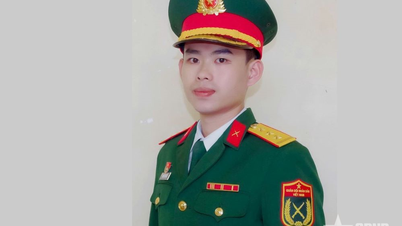
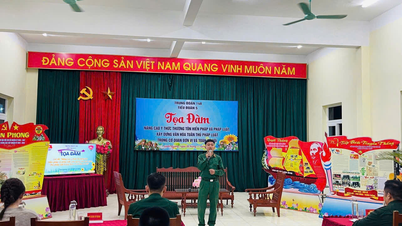
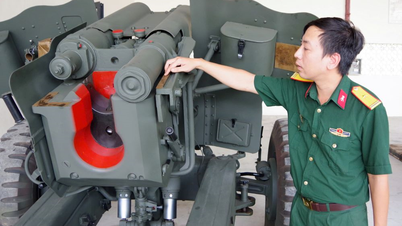
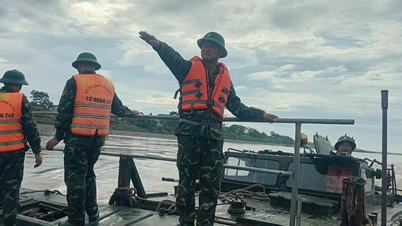
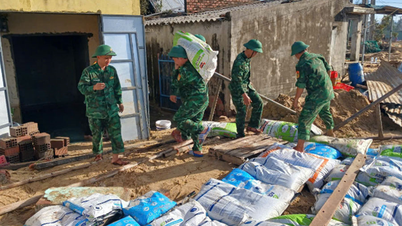




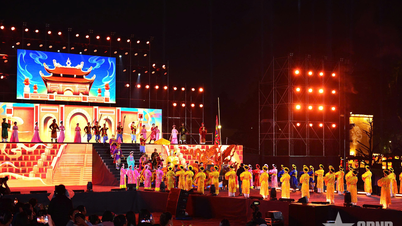
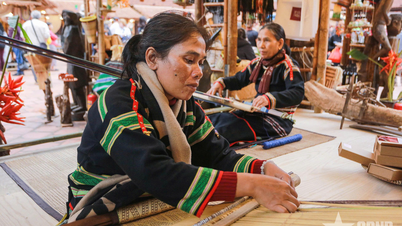
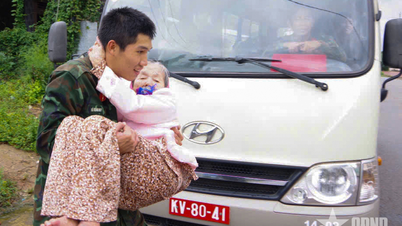
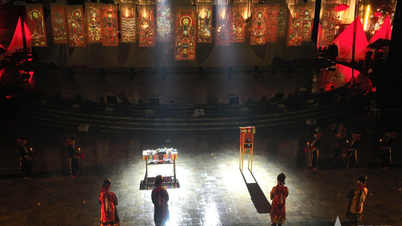

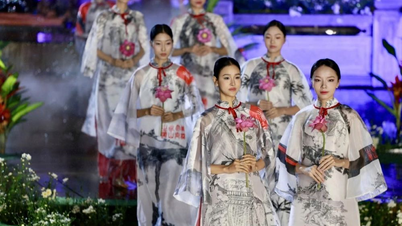
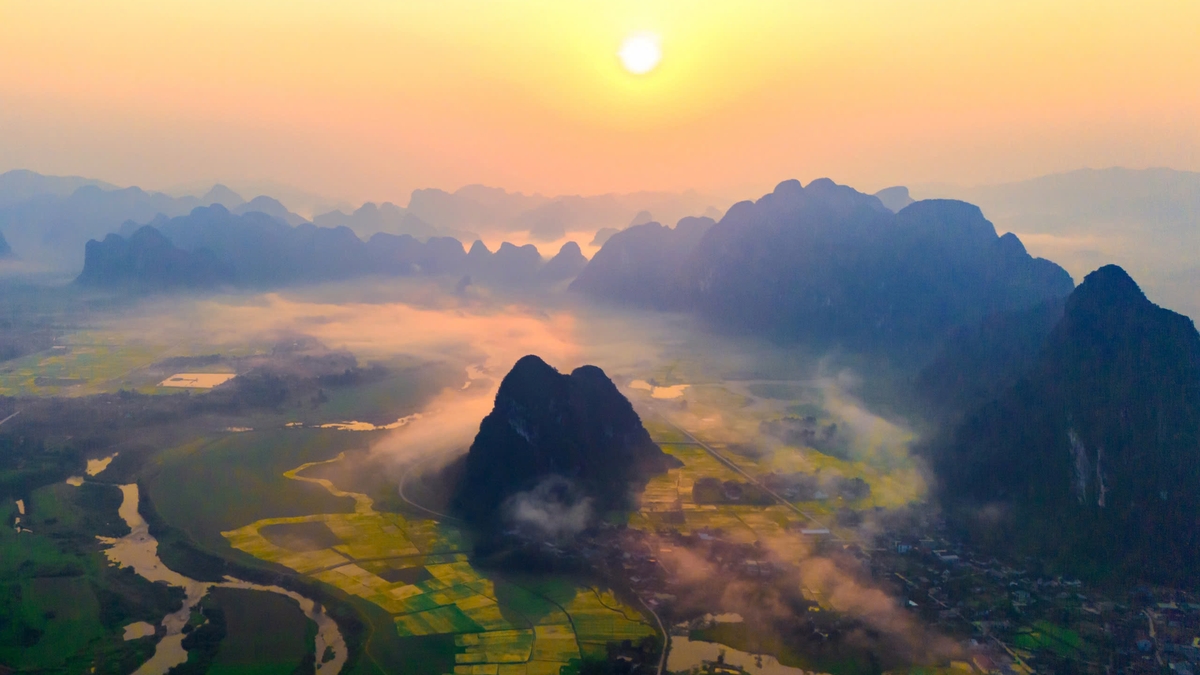









![[Video] Hue Monuments reopen to welcome visitors](https://vphoto.vietnam.vn/thumb/402x226/vietnam/resource/IMAGE/2025/11/05/1762301089171_dung01-05-43-09still013-jpg.webp)


























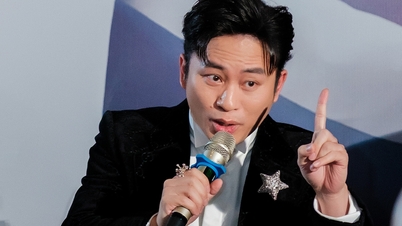













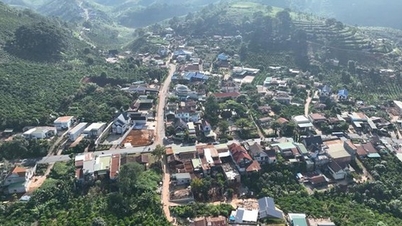



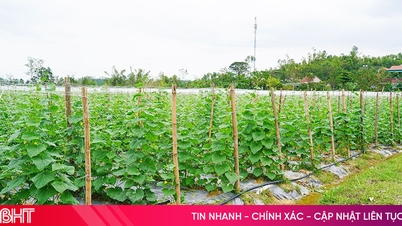
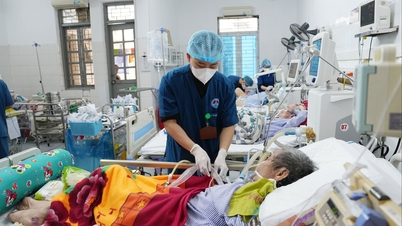

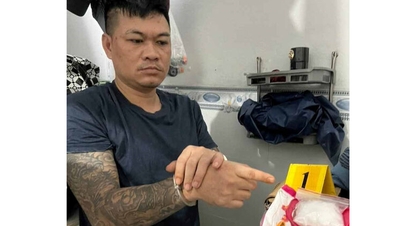

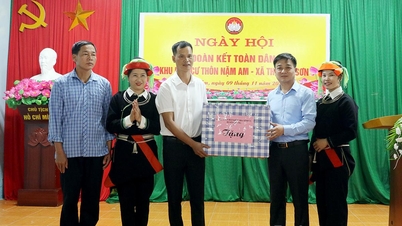

![Dong Nai OCOP transition: [Part 2] Opening new distribution channel](https://vphoto.vietnam.vn/thumb/402x226/vietnam/resource/IMAGE/2025/11/09/1762655780766_4613-anh-1_20240803100041-nongnghiep-154608.jpeg)









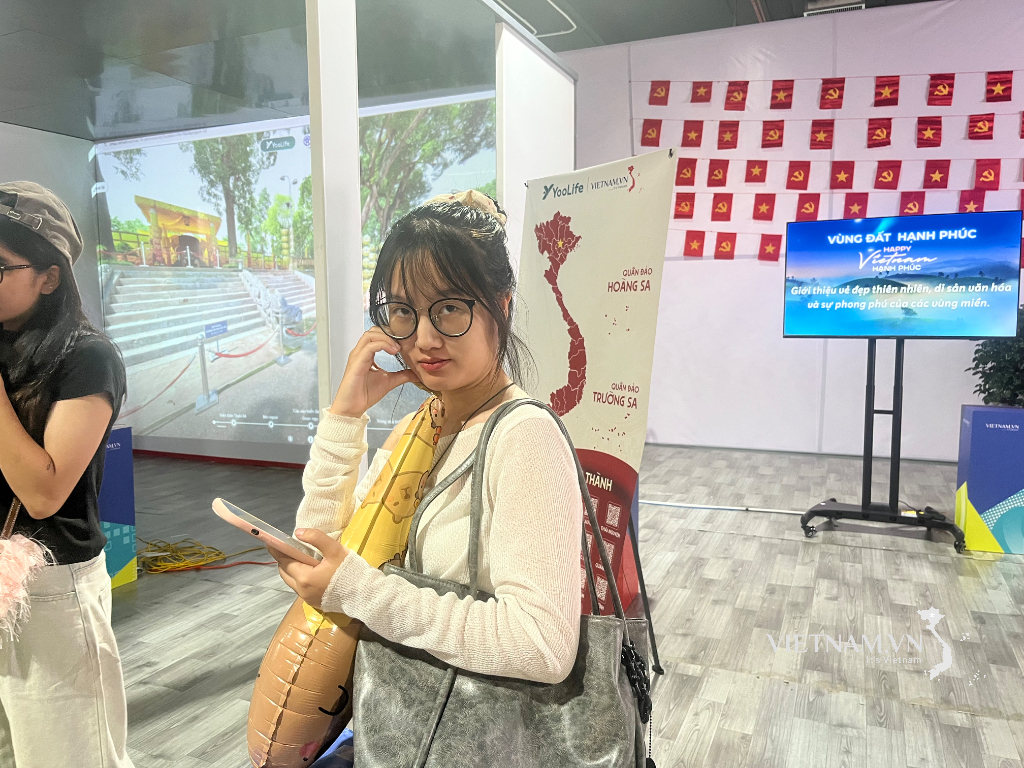



Comment (0)